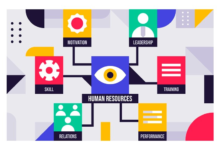
Data Analyst vs. Data Scientist vs. Data Engineer – Which one should I become?
Many employers use the terms data analyst, data scientist, data engineer interchangeably. What they don’t know is in reality, these roles span varying responsibilities and skills. Even though all these three profiles deal with data sets and refine the strategy for data, they are not the same. On reading this article you will get a clear understanding of the three popular data related job roles.
Data Analyst vs. Data Engineer vs. Data Scientist
Data has always been a significant aspect of any business to make decisions precisely. Modern enterprises depend heavily on data-driven approaches for strategic planning and business decisions. So, there are various roles in the industry to cultivate the data because of its priceless insights and credence. Among these roles, data analyst, data scientist, data engineer are the most prominent ones.
· Data Analyst: Data analysis is the technique of extracting information from a pool of data for business insight. A data analyst gleans meaningful insights from raw data through the process of data cleansing, conversion, and data modeling. A bachelor’s degree with statistical knowledge, along with a data analyst certification, can land professionals in this job role. Various industries that leverage data analytics by hiring data analysts are technology, business, medical science, social science, etc. Data analysts are responsible for analyzing market trends, customer requirements and extract meaning out of the analysis.

They present the data through data visualization techniques so that the executives can make careful data-driven decisions. They are well-versed with different statistical methods, EDA analysis, data cleaning techniques, and data visualization tools. Programming skills like Python, R, SQL, and proficiency in other technical skills like machine learning and handling frameworks are desirable. Lastly, data analysts must have a strong understanding of the business and its goals. Data analysts also perform tests & validation of datasets, apply data quality standards, and generates KPI reports about data. A data analyst enjoys a salary of around $67,130 annually.
· Data Scientist: It is the most trending job role of the twenty-first century. Data scientists are responsible for analyzing the most complex data. They dissect and interpret complex data to support business executives take more reliable data-driven decisions. Data scientists should have profound knowledge of programming, statistics, mathematics (multivariable calculus and algebra), model machine learning algorithms, etc. They perform data cleaning to extract quality data. Then, they leverage these data to identify hidden patterns and feed the ML training algorithms with those data sets. They are also responsible for developing these algorithms that will ultimately extort refine business metrics.
After post-processing the output of these models, data scientists report the findings to senior executives or managers. Usually, they use data visualization libraries and tools to deliver or present the report. Once the result gets accepted, data scientists put the work into permanent action through automation. To become a data scientist, you should qualify Bachelor’s degree or Master’s degree in either computer science, social sciences, physical sciences, or statistics. Along with it, some specialized certification in data science is preferable. A data scientist enjoys a salary of around $119,410 annually.
· Data Engineers: Data engineers prepare data for further analysis by data analysts and data scientists. They are also qualified for developing platforms and system design to render data processing. In other words, they build the foundation for various data-related operations. Once they develop the data architecture for data operations, they are also responsible for testing and maintaining the architecture. In this role, they usually embark on the trail of big data. After dealing with both structured and unstructured data, they make the data enable for data analysts and data scientists to scrounge for new insights. They often had to work with SQL and NoSQL database management systems. They often remain engaged in numerous data-related operations such as data management, data cleansing, transformation, replication, formatting, etc.

Data engineers are either Bachelor or Master’s degree holders, along with a specialization in the data-related field or experienced Data Analyst. Apart from these, they need to have a solid technical background and the ability to integrate APIs. Some popular skills required in this job role are SQL, NoSQL like MongoDB, understanding the databases, Kubernetes, Hadoop, Apache Spark, etc. Apart from all these, data engineers should have a sound knowledge of technologies like cloud, SAP Data Services, and data warehousing solutions like Amazon Redshift, BigQuery, etc. A data engineer enjoys a salary of around $125,407 annually.
| Data Analyst | Data Scientist | Data Engineer |
| Sound knowledge of analyzing granular data for better insights | Proficiency in statistical & analytical skills | Proper understanding of different data warehousing concepts & ETL (Extract, Transform, and Load) |
| This profile requires intensive programming knowledge to extract granular data. | This profile requires an intensive understanding of Machine Learning models, Deep Learning principles, and data science concepts. | This profile requires preparing data through Big Data technologies like Hadoop, Spark, etc. |
| They are responsible for developing data insights and reporting them through data visualization. | They are responsible for creating advanced data analytics to help executives make data-driven decisions. | They are responsible for building data architecture and pipelining. |
| They deploy program-oriented analysis of data and use data visualization libraries likes Matplotlib and Seaborn to report them. | They optimize the data and then deploy predictive ML models involving strategic planning and ad-hoc analysis. | They deploy statistical models through large-scale data processing tools like Hadoop and Kubernetes for further data operations. |
We hope this comprehension has given you a proper understanding of the difference between data analysts, data scientists, and data engineers and how their work gravitates in different domains and skills. All these three fancy data-oriented job roles are in heavy demand across diverse industry verticals. So, if an aspirant is looking to get into an impressive career, it is the right time to develop your skills.
For more articles to read









